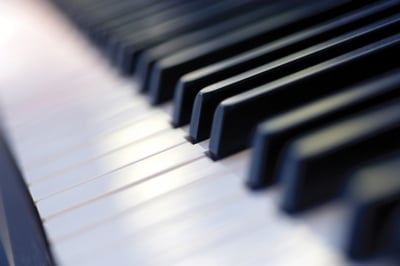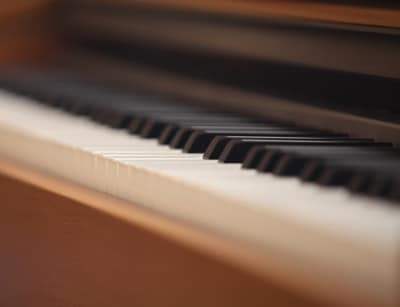Today’s Church Pianist

The role of the church pianist has always been the same, and always changing. The paradox can actually be stated in another way: The model for this vital position in church music has remained much the same for many decades, but the literature and stylistic/technical demands are evolving. Since I’m most familiar with the life and piano playing of one person in particular—me—let me use my own experience as an example.
When I first began playing the piano regularly in my local church in the early 1970s, the job description was pretty slim. I needed to be able to play what was in the hymnal for congregational singing; I played a few choruses, written primarily in four-part “hymnal” style (Gaither’s “The Family of God” was cutting edge); various singers needed accompaniment, as did the Adult Choir and the Teen Choir; I played the occasional offertory (brilliantly executed tour de force performances of arrangements by Rudy Atwood, et al. This was even pre-Dino); and I spent a lot of hours working up the accompaniments for the Adult Choir’s obligatory Christmas and Easter cantatas by John W. Peterson. Of course I had taken several years of piano lessons, but much of my more advanced technique frankly came from practicing and conquering these various parts of my church pianist duties, as well as doing the same for my High School choir.
Although the preceding list seems like quite a variety of tasks for the pianist, most of it was similar—playing from a score (hymnal, chorus sheet, sheet music, choral book) that was either SATB on a grand staff or an accompaniment written for the piano. Well, that about sums up my training in being a church pianist.
Oops. Except for the times when printed music wasn’t available and I had to play by ear. Oh, and the time a few years later in college when I substituted for the College Church pianist (a big deal) and had to play “incidental” music during parts of the service. And let’s not forget the part-time church job during grad school when I often led worship from the piano. Also memorable are countless times when I played piano as part of an orchestra, but all I was given was a score reduction that doubled every other part being played by other instruments.
Fast forward many years through the 1980s and 1990s when I was often the Music Director and sometimes pianist and had to be able to play from lead sheets and band charts in a variety of popular and even World-Music styles. OK, now do you get the idea that although the pianist (or keyboardist) may still be the core of the instrumental music in many churches, the job description has mushroomed from the 1950s model? Today’s church pianist in just about any type of Christian church can benefit from being more experienced in a wider variety of styles, genres, and techniques than in years past. The good news is: This is attainable—at least to some degree—by anyone out there who is playing, or who will play, in a church setting.
Not all churches need the same thing from the one at the keyboard, but here is a sampling of what can be useful—if not indispensible—in a church pianist today.
The pianist/keyboardist should be able to:
- play standard four-part notation (hymnal, songbook, choral)
- provide chordal accompaniment from a lead sheet or chord chart
- play in the appropriate style requested
- improvise appropriate non-melodic music
- extract an appropriate piano/keyboard part from a full or condensed orchestral score
- play a solo composition or arrangement
- know how to combine the ranges/timbres of the piano/keyboard with other instruments and voices
- adapt range, chordal texture, and improvisational technique to accompany singing by groups of various sizes
- discern the appropriate amount of leadership or collaboration that is need from the piano/keyboard relative to other instruments
The above list, although ambitious, is probably not exhaustive. Each pianist in each church faces a unique task of meeting the stylistic and technical demands required to serve that particular congregation. But it’s also exciting to imagine how much each player can contribute to the Kingdom of God by being well prepared for these challenges. Pianists should be up to this. Congregations need it. God expects that we give it our best.
“The world is changing so fast that there are days when the person who says it can’t be done is interrupted by the person who is doing it.” -unknown
Dr. Jeff Bell is professor of Music at Olivet Nazarene University. He has worked in various positions of Church Music leadership for the past 40 years and is currently organist and choir director at College Church of the Nazarene in Bourbonnais, IL.





